阿羅頻多事畧
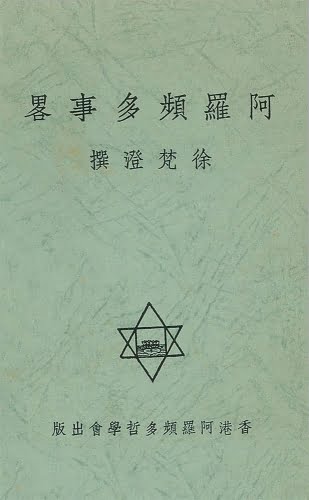
阿羅頻多事畧
《阿羅頻多事畧》小引
印度當代三位精神學術的巨人,一是聖雄甘地,一是詩聖泰戈爾,一是聖哲阿羅頻多,前面的兩位在二十年間已有不少華文的譯本介紹了。惟有這位早在中年的盛期便退隱到南印海濱的聖哲,比較具體的介紹給華人認識的,就以這本小冊子爲開端的第一頁了。(徐梵澄)
版本詳情
作者: 徐梵澄著
頁數: 28頁
出版發行: 香港阿羅頻多哲學會
出版日期: 1954年10月1日出版
編輯: Anandi
書籍格式: pdf
語言: 華文
Read more

《阿羅頻多事畧》小引
印度當代三位精神學術的巨人,一是聖雄甘地,一是詩聖泰戈爾,一是聖哲阿羅頻多,前面的兩位在二十年間已有不少華文的譯本介紹了。惟有這位早在中年的盛期便退隱到南印海濱的聖哲,比較具體的介紹給華人認識的,就以這本小冊子爲開端的第一頁了。(徐梵澄)
作者: 徐梵澄著
頁數: 28頁
出版發行: 香港阿羅頻多哲學會
出版日期: 1954年10月1日出版
編輯: Anandi
書籍格式: pdf
語言: 華文
Read more
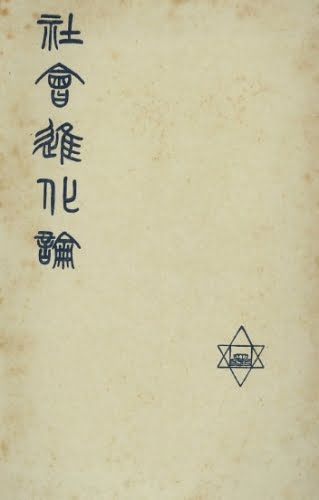
《社會發展的心理學》,室利·阿羅頻多,Sri Aurobindo撰,原為阿黎耶哲學雜誌中之論文,始於一九一六年八月,終於一九一八年七月。單行本一九五〇年紐約出版,改名《人類循環論》,The Human Cycle,凡二十四章,三百頁,附索引十二頁。二題名在華文皆頗生疏,以書之內容,乃論社會進化之事,故逕題曰《社會進化論》。
論撰於世界局勢之成敗利鈍多所豫見,然其時軸心國家及蘇俄尚未蹶起,故讀者宜約略回溯該時代思潮及世界事勢,然後於書中之理可更瞭然。第二次世界大戰結束及印度獨立,猶撰者所及見,凡諸後來變化與其學理相應者,皆經略加註明,見於原書每頁之末,譯出則附於每章之次。其中事義有非通俗所知者,更由譯者補註數事。
譯文脫稿于一九五四年,飄搖風雨,又值法屬海圻多事之秋,蓋庋置六年然後出版,殊非旦夕造次者。書原為神聖母親而譯,徇知感德,未嘗不覃思盡慮為之;倘竟有動於天下後世耶,必同此一慈光藹徹,景從神會,可以忘言。(譯者)
作者: 室利·阿羅頻多著 徐梵澄譯
頁數: 266頁
出版發行: 室利·阿羅頻多修道院印刷所華文部出版圖書處
資料來源: Jared, 新加坡室利·阿羅頻多社區
編輯: 梵木陽
書籍格式: pdf
語言: 華文
Read more
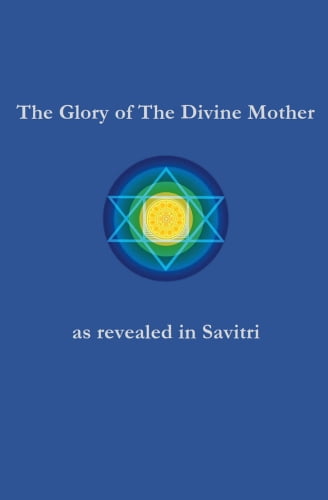
Savitri is a many-layered mantric epic that Sri Aurobindo has gifted to earth and men. Given the mantric nature of Savitri and the incarnate Divine Mother at the center and core of the yoga of supramental transformation, it is felt that invoking Her Presence with the help of these mantric lines is bound to help the aspiring soul to open more and more to Her who holds the key to change human nature into divine nature. It is with this purpose that these passages have been selected, passages that reveal to us the glory of the Divine Mother and Her vast all-embracing, all威而鋼
-transmuting Love.
Author: Sri Aurobindo
Compiler: Alok Pandey
Print Length: 145
Publisher: Sri Aurobindo Ashram
Book format: Pdf, ePub, Mobi
Language: English
(more…)
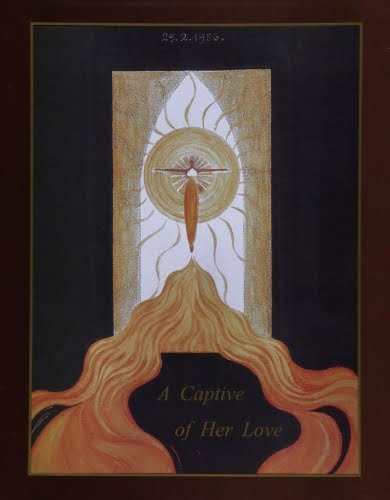
This book is a collection of letters, poems and paintings by Janina Stroka, a Polish disciple of Sri Aurobindo and the Mother and a member of the Sri Aurobindo Ashram in Pondicherry, India, from 1957 until her passing in 1964. It is a truly fascinating book that should interest readers of many backgrounds and persuasions. Employing a primarily epistolary mode, through the use of letters, it combines several interesting categories as well: spiritual travelogue, quest narrative, period history and East-West encounter. Above all, it bridges the gap between the falsity of public image vis a vis the reality of our private self.
Janina’s account of her life in Pondicherry in this book is divided into three parts. The main part of the text consists of extracts from letters written to a Dutch friend with whom Janina lived first in Palestine and later in Germany, from December 1957 to June 1958. The letters in the next section were written between 1960 and 1963 to a young Bengali, a writer and social worker. Next, the book contains selected poems and paintings by Janina and concludes with a comment by the Mother on Janina’s passing.
All of these provide an invaluable glimpse into Janina’s inner life in the Ashram, no less than her observation of the details of the seemingly trivial but no less significant aspects of the day to day life in the Ashram and Pondicherry during the late fifties and early sixties. We find, for instance, a perceptive description of meal-time atmosphere in the Dining Room. Those who habitually crib against the Dining Room food would do well to see Janina’s sense of reverence towards this food (“We always get two bananas and a wonderful yoghurt, just a dream!”). She talks memorably of a number of events and impressions of the supramental force spread over Pondicherry, vis a vis the ubiquitous presence of the town’s dirt, filth and squalour; about “bad people in the Ashram”; regarding the problem with maid-servants, their perpetual intrigues and the need to constantly humour them in order to extract work out of their reluctant selves and so on. She also records her encounters with Pavitrada, Nolinida and Medhananda and the quota of luscious mangoes from Bombay that she receives from X, a friend: “What a pity that I do not have a husband” she observes with self-deprecating humour.
Janina reveals in her engrossing accounts that despite their rootedness in reason, science and rationality, (or perhaps because of it!) a dedicated westerner, drawn powerfully to spirituality, is likely to blossom more fully vis a vis his/her eastern counterparts. Her life — full of ordeals, hardships and agony — is testimony to the indomitable human spirit forever in search of the deepest meaning of life. Her narrative offers us a lesson in humility.
(from book review by Dr Sachidananda Mohanty)
Author: Janina Stroka
Print Length: 106
Publisher: Sri Aurobindo Ashram
Book format: Pdf, ePub, Mobi
Language: English
Read more
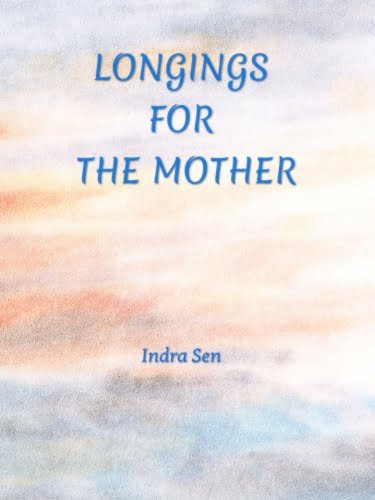
I learned of the Mother’s passing on the morning of the 18th November, 1973 at Sri Aurobindo Yoga Mandir, Jwalapur (Hardwar), where my normal work lies as given by the Mother in 1958. The impulse that arose within me was to go deep within and be with the Mother to the best of my capacity. I reduced my external preoccupations to the minimum and began to live in that manner and it was profoundly satisfying. In this experience, there were occasional moments of shock and grief too but, on the whole, there was a feeling of inner assurance and a sense of contact and conversation with the Mother. On the morning of the 27th November, as I sat in this contemplation, a move arose to concretise the inner thought and feeling and I wrote out “Our Mother, who is no more, who is ever more.” Soon all the ten topics ending with “Mother, we read again Your ‘Notes on the Way’” came along. And I read these again and again and enjoyed doing so. I began to do this day after day. I felt that this tended to deepen my inner contact. The next three pieces were written on the following three days, a piece per day. Then I had to go on a short journey and, for about a fortnight, there was no writing. About the middle of December, the writing was resumed and the remaining six pieces were written out. The entire writing was done, on the whole, with ease and simplicity.
To me, all this served to clarify and strengthen an inner contact with the Mother. Many friends, who have read these pieces in typescript, have felt deeply moved and found in varying degrees a greater inner contact.
Author: Indra Sen
Print Length: 43
Publisher: Sri Aurobindo Ashram
Book format: Pdf, ePub, Mobi
Language: English
Read more
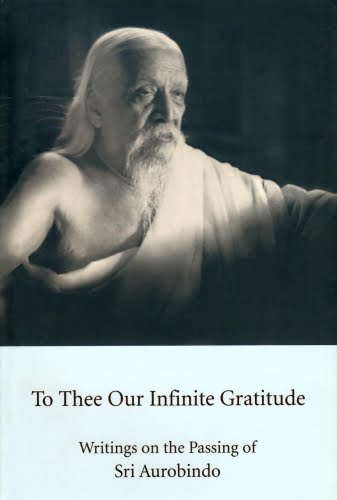
Writings on the Passing of Sri Aurobindo
A series of essays written in commemoration of Sri Aurobindo’s passing. The words of Amal Kiran, Udar and K.R.S.Iyengar give us a vast spiritual, psychological and factual perspective of the event, greatly helping us to understand several aspects of the Yoga of Sri Aurobindo, the young American scholar Rhoda P. Le Cocq’s account of the last Darshan of the Master and the Mother unveils that aspect of the power of Grace which so smoothly and silently demolishes the wall of scepticism one had maintained around oneself for long. The compilation brings us a serene calm and an intense feeling of gratitude, and reminds us that:
Death is a stair, a door, a stumbling stride
The soul must take to cross from birth to birth,
A grey defeat pregnant with victory,
A whip to lash us towards our deathless state.Savitri
Author: Nirodbaran, Dr. Prabhat Sanyal, Amal Kiran, Udar Pinto, Pavitra, K.R.S. Iyengar, Rhoda P. Le Cocq
Print Length: 100
Publisher: Sri Aurobindo Ashram
Book format: Pdf, ePub, Mobi
Language: English
Read more
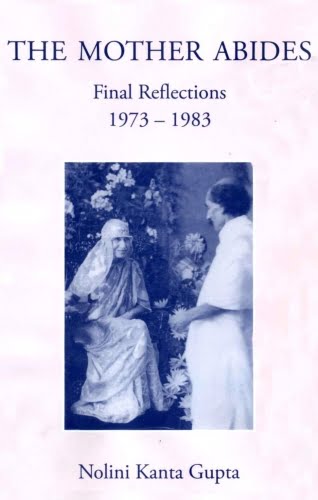
These thoughts and reminiscences of Nolini Kanta Gupta were written or spoken during the final decade of his life — from the time of the Mother’s passing in November 1973 until shortly before his own passing in February 1984. During that period they served as a source of guidance and consolation to the Ashram community, and they still seem relevant today.
Many of these writings and talks were first presented to the students, young and old, of Nolini-da’s classes. Later they were published in The Advent, a quarterly journal he edited, or in his Collected Works. Details about their publication and a life-sketch of the author are given at the end of the book.
Author: Nolini Kanta Gupta
Print Length: 77
Publisher: Sri Aurobindo Ashram
Book format: Pdf, ePub, Mobi
Language: English
Read more
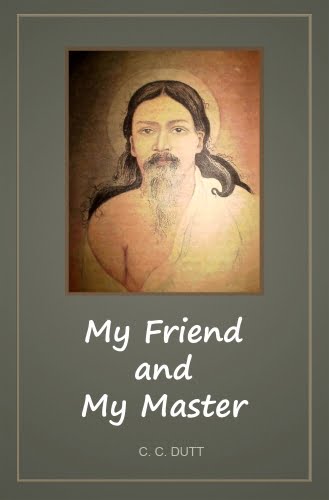
A Memoir by C.C. Dutt
The book “My Friend and Master” is a personal account of Sri Aurobindo’s pre-Ashram days told by C.C.Dutt, who had been a revolutionary comrade and later became a spiritual disciple of Sri Aurobindo in his ashram. C.C. Dutt’s memoir carries the unmistakable direct presence of the Guide and Master and vivid experience that can only occur in the immediate closeness to the Guru. It will be of a great interest to all those who have been guided on their spiritual paths by Sri Aurobindo’s words and presence. C.C. Dutt’s memoir “My Friend and Master” was originally published in “Sri Aurobindo Circle” Eighth Number, 1952
Author: C.C. Dutt
Print Length: 34
Publisher: Auro e-Books
Original source: http://auromaa.org/my-friend-and-my-master-charu-chandra-dutt-part-2/
Book format: Pdf, ePub, Mobi
Language: English
Read more
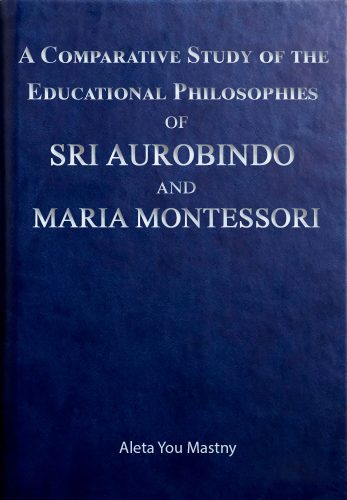
In 1975, Aleta You Mastny wrote this dissertation, “A Comparative Study of the Educational Philosophies of Sri Aurobindo and Maria Montessori”, as a part of the requirements for her Doctor of Philosophy degree. In this paper, Mastny presents a detailed examination of the educational philosophies of two important pioneers in the field of childhood education.
Maria Montessori was a truly remarkable woman who was born in August 31, 1870, and was educated in Italy. Beginning her higher education in the field of engineering, she later switched to medicine. After earning her medical degree, she becoming an expert in pediatric medicine and went on to conceptualize her own methods of applying the educational theories first put forth by French physicians Jean-Marc-Gaspard Itard and Édouard Séguin. Her success in education came form her application of a religious, if not wholly spiritual, perspective, to the practical knowledge she developed in close observation of childhood development.
Sri Aurobindo was a most remarkable man born in India on August 15, 1872 and classically educated in England. When he returned to India, he fought for the independence of India as a political leader and went on to become a well respected spiritual leader, establishing an ashram with his collaborator, Mira Alfassa (The Mother). While overseeing a growing community in the ashram, Sri Aurobindo and The Mother developed and implemented their own ideas about childhood education.
In this insightful paper, Mastny finds many important parallels between Montessori’s theories and those of Sri Aurobindo. Despite the scholarly form of this dissertation, fans and followers of Sri Aurobindo are sure to find this work interesting. It also has a five-page bibliography.
Author: Aleta You Mastny
Print Length: 145
Publisher: ProQuest Dissertations & Theses
Submitted by: Blindshiva
Book format: Pdf
Language: English
Read more
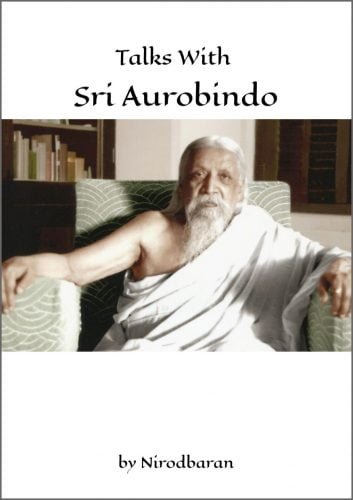
On the eve of the November Darshan Day in 1938, the hostile forces finally managed to strike a heavy blow against Sri Aurobindo. In the wee, dark, hours of the morning, Sri Aurobindo “stumbled” over a tiger skin rug in his apartment and struck his right knee upon the skull of the tiger, causing a fracture of his right femur. However, as these two volumes of Talks with Sri Aurobindo recorded by Nirodbaran will attest, the attempt by the forces of Darkness to silence Sri Aurobindo actually had the opposite effect, creating an opportunity for a handful of disciples and others to engage in a free flowing, wide-ranging, informal and open inquiry into the Master’s thinking and teaching which would never have happened otherwise. Collected here, we have the reminisces, musings and discussions of that band of men who were fortunate enough to be there at the right time and place to make this intimate atmosphere among seekers of Truth possible. These conversations stretched over a period of nearly twelve years, bringing these men ever closer to each other and closer to the light.
Author: Nirodbaran
Print Length: Volume 1 – 514p., Volume 2 – 517p.
Publisher: Sri Aurobindo Ashram
Submitted by: Blindshiva
Book format: Pdf, ePub, mobi (Kindle)
Language: English
Read more
